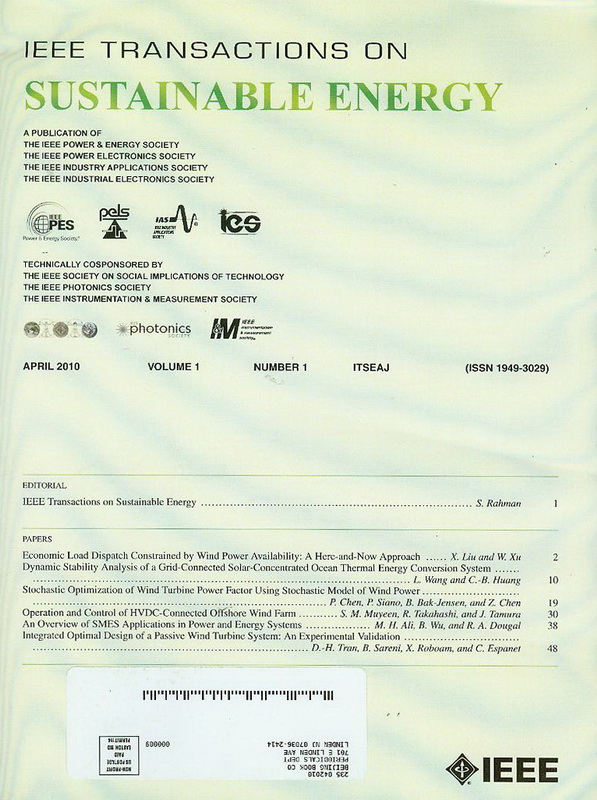Error-Based Active Disturbance Rejection Power Control for Large-Scale Wind Turbines Under Pitch Actuator Performance Degradation Failure
IF 10
1区 工程技术
Q1 ENERGY & FUELS
引用次数: 0
Abstract
This study addresses the critical challenge of constant power control for large-scale wind energy conversion system under the combined effects of pitch actuator degradation and multiple disturbances. In the paper, a novel fault-tolerant control strategy based on error-based active rejection control (E-ADRC) is proposed. The approach incorporates a composite control architecture, comprising a disturbance rejection tracking loop and a fault-tolerant compensation loop. Within the tracking loop, an enhanced E-ADRC algorithm is suggested which not only retains the robustness and ease of implementation of traditional E-ADRC but also significantly improves the attenuation of low-frequency wind disturbances—the turbine’s primary disruption. The fault-tolerant compensation loop applies independent control signals, derived from pitch angle residuals, to each faulty actuator, mitigating the extra fault disturbances in rotor speed tracking dynamics. This dual-loop structure enables the turbine to restore high-stability power output after a fault. Furthermore, the fault-tolerant compensation mechanism ensures that, even in cases of part of the three actuators failure, the previously misaligned pitch angles are synchronized, effectively suppressing the detrimental aerodynamic imbalance and reducing adverse loads. The superiority of this approach in enhancing power output stability and reducing structure fatigue damage have been validated through a refined hardware-in-the-loop test.大型风力发电机桨距执行器性能退化失效时基于误差的自抗扰功率控制
该研究解决了大型风能转换系统在桨距执行器退化和多重干扰综合作用下的恒功率控制的关键问题。提出了一种基于误差的主动抑制控制(E-ADRC)的容错控制策略。该方法采用复合控制体系结构,包括干扰抑制跟踪回路和容错补偿回路。在跟踪回路中,提出了一种增强的E-ADRC算法,该算法不仅保持了传统E-ADRC算法的鲁棒性和易于实现性,而且显著提高了对低频风扰动的衰减。容错补偿回路将由俯仰角残差导出的独立控制信号应用于每个故障执行器,减轻了转子速度跟踪动力学中的额外故障干扰。这种双回路结构使涡轮机在发生故障后能够恢复高稳定的功率输出。此外,容错补偿机制确保即使在三个致动器部分失效的情况下,先前未对准的俯仰角也能同步,有效抑制有害的气动不平衡,减少不利载荷。该方法在提高功率输出稳定性和减少结构疲劳损伤方面的优越性已通过精细化的硬件在环试验得到验证。
本文章由计算机程序翻译,如有差异,请以英文原文为准。
求助全文
约1分钟内获得全文
求助全文
来源期刊

IEEE Transactions on Sustainable Energy
ENERGY & FUELS-ENGINEERING, ELECTRICAL & ELECTRONIC
CiteScore
21.40
自引率
5.70%
发文量
215
审稿时长
5 months
期刊介绍:
The IEEE Transactions on Sustainable Energy serves as a pivotal platform for sharing groundbreaking research findings on sustainable energy systems, with a focus on their seamless integration into power transmission and/or distribution grids. The journal showcases original research spanning the design, implementation, grid-integration, and control of sustainable energy technologies and systems. Additionally, the Transactions warmly welcomes manuscripts addressing the design, implementation, and evaluation of power systems influenced by sustainable energy systems and devices.
 求助内容:
求助内容: 应助结果提醒方式:
应助结果提醒方式:


